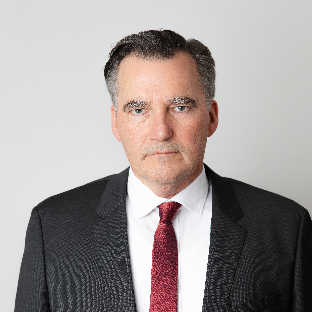Note: A complete summary of today’s Security Council meeting on Yemen will be made available upon completion.
Briefings
HANS GRUNDBERG, Special Envoy of the Secretary-General for Yemen, noting that the Security Council briefing takes place as Muslims around the world look forward to Ramadan, said the overall military situation in Yemen remains relatively stable since the truce that became effective on 2 April 2022. Yet, he was concerned by the uptick in the number and intensity of clashes in several front-line areas, particularly in Ma’rib and Ta’iz, and called on all parties to exercise maximum restraint during this critical time, including by refraining from escalatory public rhetoric.
He said elements of the truce continue to be implemented, and with the support of Jordan, commercial flights continue to operate three times a week between Sana’a and Amman. Fuel ships continue to enter Hudaydah ports, along with other commodities. Yet, these gains are also fragile and daily life remains a struggle for most Yemenis. “This underscores what I have stated almost one year ago: The truce can only be a steppingstone. We urgently need to build on what was achieved by the truce and work toward a nationwide ceasefire and an inclusive political settlement to end the conflict in Yemen,” he said.
Intense diplomatic efforts continue at different levels to end the conflict and a ceasefire and a sustainable political settlement can only be achieved through a more comprehensive approach, he said, adding that he is engaging with the Yemeni parties, as well as regional and international stakeholders. The parties, as well as regional States, are unequivocal that any understanding reached as part of the ongoing discussions must be translated into a Yemeni-Yemeni agreement under United Nations auspices. A resumption of a Yemeni-Yemeni political process is a central element and remains at the core of his mandate. A political process that addresses the concerns and aspirations of Yemen’s people must be Yemeni-owned and include the voices of Yemeni stakeholders, including youth, civil society and women. Last week’s observance of International Women’s Day shows the role that women play in furthering peace and the risks and restrictions they face. “Women are central to the social fabric of Yemen and their meaningful participation is essential for moving Yemen forward,” he added.
He then turned to the Supervisory Committee on the Implementation of the Detainees’ Exchange Agreement, which is co-chaired by his Office and the International Committee of the Red Cross (ICRC). Deliberations are still ongoing between the parties and he hoped they can implement their obligations under the Stockholm Agreement to release all conflict-related detainees. Noting the recent agreement between Saudi Arabia and Iran to resume diplomatic ties, he said this dialogue and good-neighbourly relations are important for the region and for Yemen. “The parties must seize the opportunity presented by this regional and international momentum to take decisive steps towards a more peaceful future,” he said. “This requires patience and a long-term perspective. And this requires courage and leadership. Much has been achieved over the past year and now it is time to the next step.”
JOYCE MSUYA, Assistant Secretary-General for Humanitarian Affairs and Deputy Emergency Relief Coordinator, said the last year has brought a number of improvements to Yemen. The truce, and the fact that many of its key provisions have been maintained even months after the truce itself expired, were major steps forward. Another improvement has been a decline in the number of people going hungry in Yemen, which has fallen by almost 2 million people. The rate of people suffering from the worst level of hunger – known as Integrated Food Security Phase Classification 5, or IPC5 – has dropped to zero, thanks largely to the tireless efforts of humanitarian workers, the generous support of donors and to the truce itself.
There has also been progress on the Safer oil tanker, she said, recalling that the United Nations Development Programme (UNDP) recently announced the purchase of a replacement vessel that should arrive in the port city of Hudaydah in May. Such a pace means the offloading operation could finish by September, if donors quickly provide the remaining $34 million needed. While emphasizing those achievements, however, she stressed: “We must not rejoice too much.” Yemen remains a staggering emergency, with more than 17 million people counting on aid agencies for assistance and protection in 2023.
Against that backdrop, she said humanitarian agencies too often lack the resources they need to provide the help needed in Yemen. Access and security remain major challenges, funding is in short supply and economic problems are pushing even more people into destitution. She noted that humanitarian personnel are now increasingly present in parts of the country that, in the past, were extremely hard to reach due to fighting, constraints by the authorities and internal United Nations security rules. In recent weeks, agencies have reached former front-line areas in Hudaydah, remote parts of Hajjah hosting numerous displaced people and other hard-to-access locations. Houthi authorities have also recently accelerated approvals of aid projects in the areas they control, which is welcome.
“But, despite these rays of light, the overall picture on access and security remains very dark,” she said. In Houthi-controlled areas, Yemeni female aid workers are still unable to travel without male guardians – both within and out of the country, which is causing serious disruptions in the ability of agencies to assist women and girls safely and reliably. Calling on the Houthis to lift all such movement restrictions and to help identify an acceptable way forward on that issue, she added that Houthi attempts to interfere with aid operations remain rife. Those include efforts to force agencies to select certain contractors for third-party monitoring and assessments. Moreover, two United Nations staff remain detained in Sana’a following their arrest by Houthi authorities in November 2021, she said, asking for their immediate release.
She went on to cite a range of other challenges, including a growing trend of vaccine scepticism – and a corresponding rising rate of vaccine-preventable diseases, such as measles and polio – as well as persistent insecurity in some areas. In 2022, aid agencies assisted nearly 11 million people every month. “Doing so is much harder than it should be,” she stressed, noting that it often requires many rounds of discussions, leading to numerous delays. But, it was, and remains, possible, if enough resources exist. Recalling the Secretary-General’s participation in a recent joint pledging event for Yemen with the Governments of Sweden and Switzerland, she said more than 30 donors promised $1.16 billion for humanitarian action. But that will not be nearly enough to get the aid operation through the end of 2023.
“We know donor funds are tight, and other crises are competing for their support,” she said, urgently advocating for the immediate disbursement of all pledges. “The promises made at the Yemen pledging event need to be quickly honoured”, as some essential humanitarian programmes are already closing. The United Nations will continue to advocate for the full funding of its response plan, where $4.3 billion is needed to help 17 million people. But she pledged that it will also continue to work closely with donors and other stakeholders on the access problems that so many donors warned about at the funding event.
Turning briefly to another related challenge, she expressed deep concern over the need for more support to strengthen Yemen’s economy. Economic decline is among the top drivers of humanitarian needs, and aid agencies want to do much more to help Yemenis move beyond the immediate crisis. One priority is to clean up the landmines and other explosives that are killing and maiming so many, as well as choking off economic life. Calling for more resources and specialized partners on that front, she said moving forward also requires ensuring that aid agencies face fewer obstacles and are able to deliver principled assistance. Meanwhile, the United Nations is working on a revised economic framework that will help address broader economic drivers of humanitarian needs in Yemen, she said, stressing: “If we miss this opportunity, it will become much harder to ever transition towards a smaller aid operation without putting millions of lives at risk.”
…







